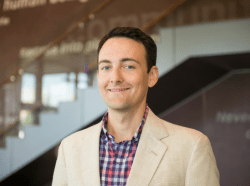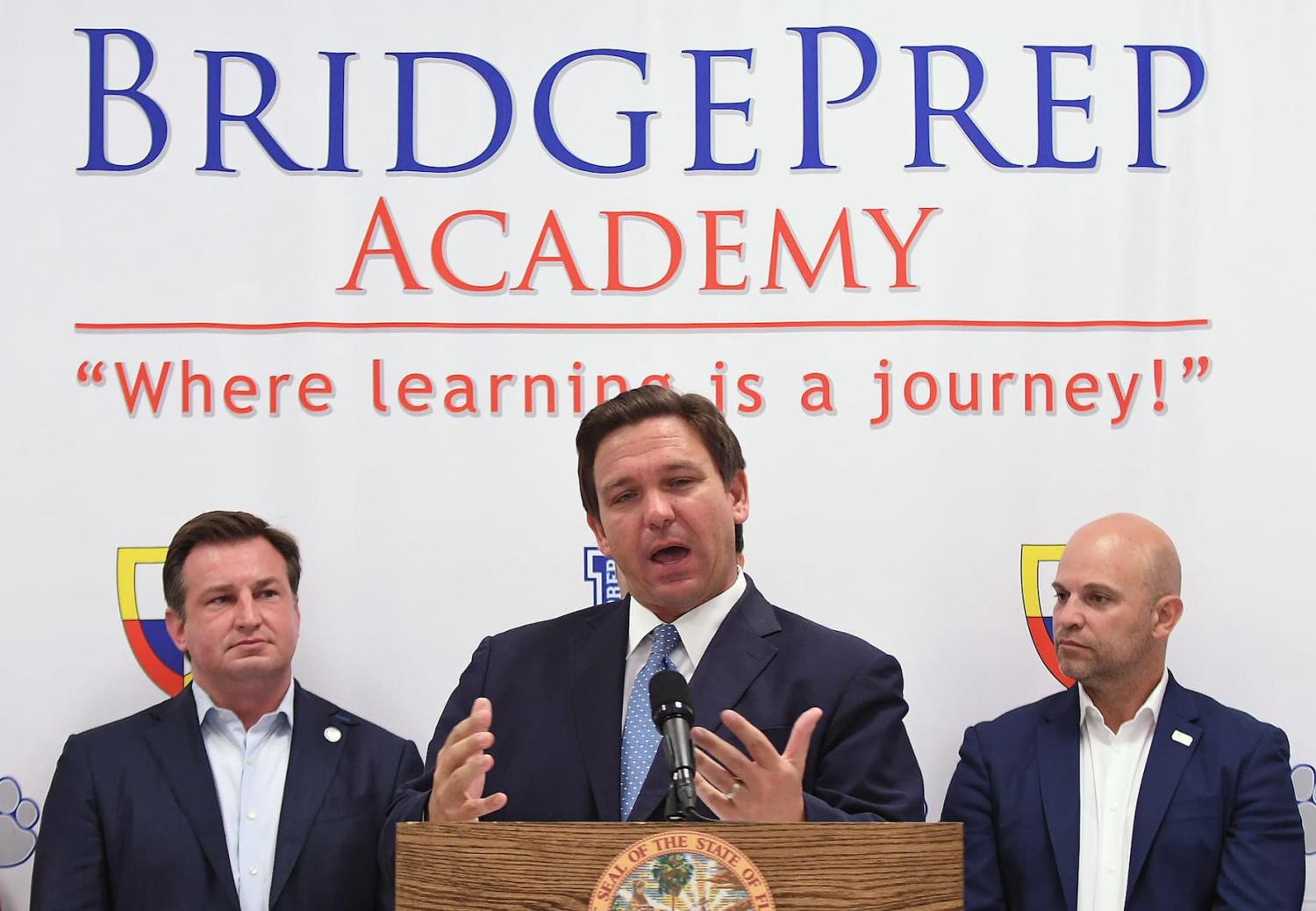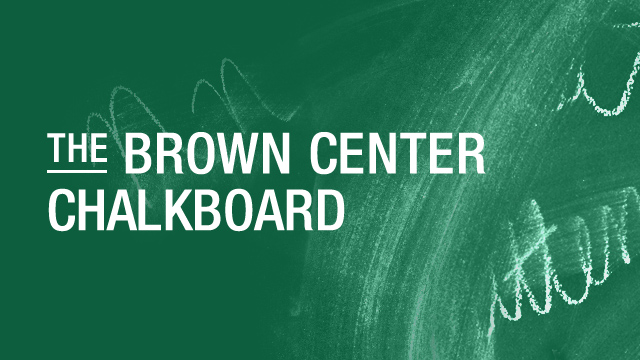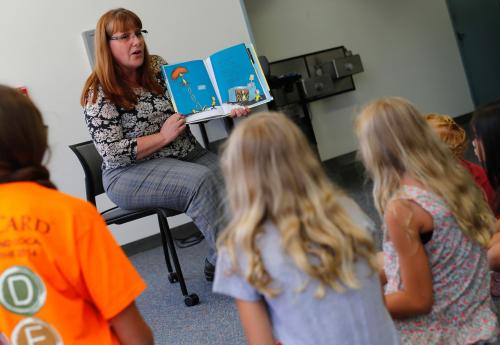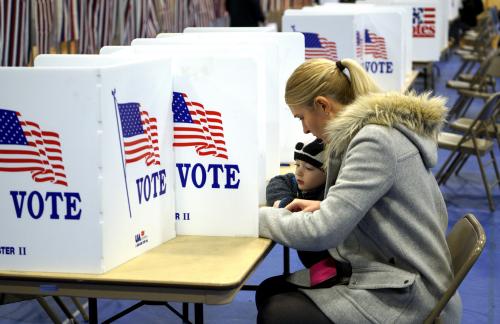With the legislative session underway in Florida, education is again at the forefront of the policy agenda and media attention. The governor recently hosted a roundtable “exposing the diversity, equity, and inclusion scam in higher education,” and state lawmakers have introduced several bills that could bring significant changes to the state’s college and university systems. Among them are SB 266 and HB 999, which prohibit spending on diversity, equity, and inclusion (DEI) initiatives, eliminate particular majors like gender studies, and allow for state-appointed trustees to call for a review of tenured faculty’s jobs at any time.
The proposed legislation follows laws enacted last year, including the Individual Freedom Act or “Stop WOKE Act,” that attempted to place limitations on how race and racism can be discussed in higher education (enforcement is currently on hold).
Florida is not alone in proposing or enacting policies that relate to DEI or faculty tenure in higher education. The Chronicle of Higher Education has identified at least 21 states with anti-DEI bills introduced in current legislative sessions, and at least five states have recently proposed legislation that would limit or remove tenure from faculty. For example, Texas has pending legislation that would prevent funding for DEI offices and eliminate tenure for future hires. Arizona has seen legislation introduced to prohibit required DEI training.
In addition to formal legislation, a number of states have requested information on DEI spending and activities in higher education. University systems have also initiated policy changes of their own. Recently, the University of North Carolina system passed a policy that would prohibit universities from requiring DEI statements of applicants.
As a professor in a Florida university, I am observing firsthand the impacts proposed policies like these are having on students, faculty, and the institution. Students are worried about whether they will be able to complete their chosen majors, faculty are concerned that research and external funding may be jeopardized, and institutional resources are being required to navigate the rapidly changing political and legal landscape. Each of these has real costs—diverting time and effort away from our institutional mission of research, teaching, and service.
As a policy researcher who studies education, I recognize that the potential costs of enacting the proposed legislation are even larger. Specifically, the proposed legislation contradicts important objectives of public higher education and may undermine the goals articulated by the legislation itself.
Universities: Educating or Indoctrinating?
At the center of the debate around these contentious legislative proposals is whether recent efforts on campuses to enhance DEI have gone too far—indoctrinating students to a particular point of view rather than fostering an environment of open academic exchange and learning.
Certainly, universities have not always fully lived up to the aspirational goal of being centers of open debate and viewpoint diversity. Prior studies have shown university faculty tend to be more liberal in their personal politics, particularly in the social sciences and humanities. Others have documented a lack of campus policy debates or forums with divergent viewpoints at campuses nationwide. And there are instances where many may agree that DEI efforts have been implemented in ways that are problematic or even discriminatory themselves.
That said, the evidence that institutions of higher education are systematically indoctrinating students to particular viewpoints is limited. Students have autonomy to choose majors and programs of study. A recent survey of college students in Florida revealed that the majority of respondents felt free to express viewpoints on campus—though response rates were low given concerns over potential political motivations behind the survey. Florida’s own review of DEI spending revealed that institutions are spending very little on DEI.
Still, it is worth considering how we can enhance such dialogue and discussion in higher education. Newly appointed UF President Ben Sasse posed such a question in his first communication to faculty when he asked: “How will we champion pluralism, curiosity, viewpoint diversity, open debate, and intellectual rigor for our students and faculty, such that our graduates will be prepared to live and work with people of many points of view?”
Legislation that broadly prohibits DEI work and targets scholars’ academic freedom threatens the ability for universities to be sites of civil discourse, policy debate, and exploration of differing views. What is more, these proposals put at risk the quality of education provided to students and the research that supports economic development and innovation.
What’s at Stake with Proposed Higher Education Legislation?
First, higher education courses are a place where students should be free to learn about the breadth of theoretical and empirical perspectives. Instruction can present a variety of viewpoints without indoctrinating students. For example, a course could explore critical theories during one week but cover many other theoretical frameworks in the span of the course. Such instruction may still be allowed under new legislation, but many instructors would understandably be hesitant to do so.
Next, by not being more specific about what is included in DEI bans, proposed legislation complicates research that addresses pressing societal issues. For example, scientific study can help address the clearly documented disparities in public health, housing, education, and many other domains. Such work does not indoctrinate but may nevertheless seek to produce more equitable outcomes and ensure an inclusive environment for a diverse population. Without more clarity in legislative language, researchers studying these issues may feel constrained or unable to pursue such research.
The proposed legislation may also negatively affect the external funding that supports research and contributes to innovation and economic development. For example, research proposals for funding from the National Science Foundation are required to identify “broader impacts” of the work, of which inclusion and the building of a diverse STEM workforce are a part. Many prestigious foundations provide research funding that explicitly target reducing inequality or enhancing racial equity. Proposals that broadly restrict DEI work would potentially jeopardize researchers’ ability to secure such funding.
The ultimate cost of pending legislation may be the reputation of Florida institutions. The University of Florida has recently achieved the high acclaim of being one of the top five public institutions in the country and the state’s system as a whole has been recognized as among the best. Rather than jeopardizing such a reputation by limiting faculty’s ability to pursue high-quality research and limiting the diversity of perspectives students experience in courses, we should leverage the system’s excellence to inform the policy debates facing our nation.
A Model for Public Debate
It is clear that we are in the midst of a national reckoning over how issues related to race, gender, and other identities are taught, researched, and represented in our public higher education institutions. In this regard, higher education isn’t alone. Such discussions over instruction and content are also playing out in K-12 education and other sectors. For example, public schools nationwide face their own challenges about how race is taught and what instructional materials are appropriate for young students. Many in the media have framed these discussions as part of larger “culture wars.”
These debates, however, need not be a “war.” Instead, they should be collective discussions characterized by civil discourse, the sharing of differing views, and informed debate. Our public institutions of higher education should be the leader in preparing our citizens and future leaders to engage in such discourse, providing the research to inform such dialogue, and serving as a venue to model such civil debate.
There may not always be easy answers, but more productive and collectively acceptable outcomes can be furthered by a higher education system that provides research and educates the populace to be aware of the nuance of these policy debates.
If there are issues with higher education’s current efforts to increase equitable outcomes and inclusively serve a diverse student body, let’s discuss it, research it, and leverage our universities’ world-class resources to demonstrate how to civilly address it. We might find more common ground than initially thought.
Current policy proposals that could broadly limit teaching and research related to DEI and remove protections for faculty to research and teach without fear of reprisal threaten higher education’s ability to live up to this role. In doing so, such legislation falls short of its own articulated goal of creating an environment free from indoctrination.
The Brookings Institution is committed to quality, independence, and impact.
We are supported by a diverse array of funders. In line with our values and policies, each Brookings publication represents the sole views of its author(s).
